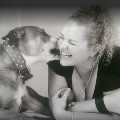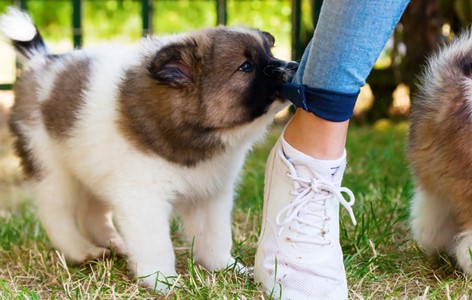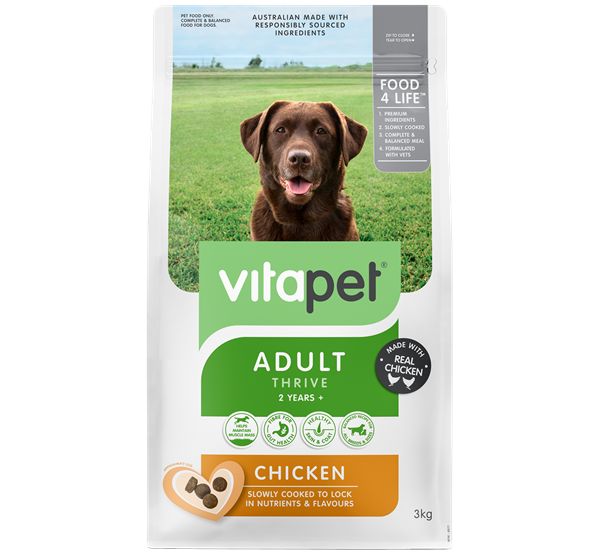Unrestrained barking. Destroying your shoes. Leaving puddles of pee on the floor.
No matter how well trained your dog is, regression can and does happen at some point.
The key to getting your pet back on track lies in how you respond to the situation.
Fight your instincts
Your first instinct might be to tell your dog off, but that’s the last thing you should do, says dog trainer Shelley Aukett from Paws and Think Dog Training in Sydney.
“Training regressions can be common and punishing your animal is a no-no,” she explains. “You have to be a bit of a pet detective instead to find out why the behaviour is happening, and then you can figure out how to make continual improvements to get back on track.”
Common issues dog owners face
If your dog’s behaviour has changed, it’s usually a process of elimination to figure out why, Shelley says. “A lot of owners get disheartened by this because they want fast results, but that’s an unrealistic expectation of an animal that can’t communicate to you very well.”
Here are three common scenarios and how to best approach them.
Scenario 1: Unrestrained barking
You’ve had to leave your dog for long periods before and there’s never been an issue. But suddenly, your neighbour calls to tell you your dog’s barking is off the charts, or that they’ve reported you to council. Shelley knows this can be a big worry for any pet owner.
“Barking is one of the things you’ll get complaints about the most and it can be very stressful,” she explains. “There are many different types of barking, too – from separation anxiety to not fulfilling the dog’s physical or emotional needs. It could just be the neighbour’s cat has taken to walking backwards and forwards on the fence line for six hours; it could be your dog is in pain, or bored or just enjoys the sound of its own voice!”
That’s why it’s important to try and find out where it’s coming from. In this situation, especially if you’re getting complaints, it can be best to call in a professional to help you tackle the problem. The trainer can assess the situation, figure out if the dog is suffering anxiety or stress, or if there are any triggers the owner doesn’t know about. “Videoing the dog when no one’s home is also often part of the plan to figure out what’s going on,” she adds.
Scenario 2: Unexpected accidents
Your pooch has been toilet trained for many years, but suddenly you’re noticing regular accidents happening around the house. The first thing you should do is ask yourself whether their routine has changed in any way. “Dogs like stability, predictability and feeling safe, so it’s important to look at this,” Shelley says.
Depending on your situation, you might also have to consider a vet visit. “If you’ve got a four- to five-year-old dog that’s been toilet trained since it was six months old and all of a sudden there are a few accidents, the dog might not be trying to dominate you or get attention,” she says.
“A sudden change in toileting could be an indication there’s a medical issue and that needs to be addressed before you do anything else.”
There could also be other issues at play. “The dog could be suffering a urinary tract infection or spinal pain, so it's best to check it out with your vet immediately.”
Scenario 3: Sudden irritability
It’s always concerning when your previously placid, contented dog suddenly becomes very irritable – and there are a few reasons why this might be happening.
“More often than not it can mean the dog is in pain – this is a huge factor when it comes to a quick onset of reactive behaviours,” Shelley says. “It could be related to arthritis, joint aches or even a change in vision and hearing. The majority of reactivity in pets stems from an emotional or fearful response to something, so always remember it’s your pet’s perception of what they find concerning, not something you think is fine.”
Sudden irritability could also be related to a change in routine or new environmental factors. It can mean your dog hasn’t had a chance to process it,” she says. “This could be a new baby in the house. It could be a new boyfriend or girlfriend who’s not as accommodating to your pet as you are. Developmental and/or hormonal growth stages in life can cause a change in behaviours too.”
A disruption in your dog’s normal routine – like you heading back to work and your dog suddenly being alone for long periods and not getting their needs fulfilled – can also be a factor. “This scenario might lead to an imbalance in arousal levels and reduction in coping mechanisms when you’re out and about with your pet.”
Figuring out what’s troubling your dog and causing a change in behaviours is not always easy. After all, they can’t talk to us. When in doubt, you should always seek professional advice. “No matter how much training you have, how many toys you buy or how much exercise your dog gets, if it turns out your pet is in physical pain or has had a change in their medical or physical health, you can’t help them unless the vet helps you first,” Shelley says.
If you know your pet is physically and mentally healthy, you can call in a professional dog trainer to help you tackle those behaviours.
“How quickly you get back on track depends on the situation and the individual dog, but it is achievable. Just remember, it’s a process that will likely take time.”
























